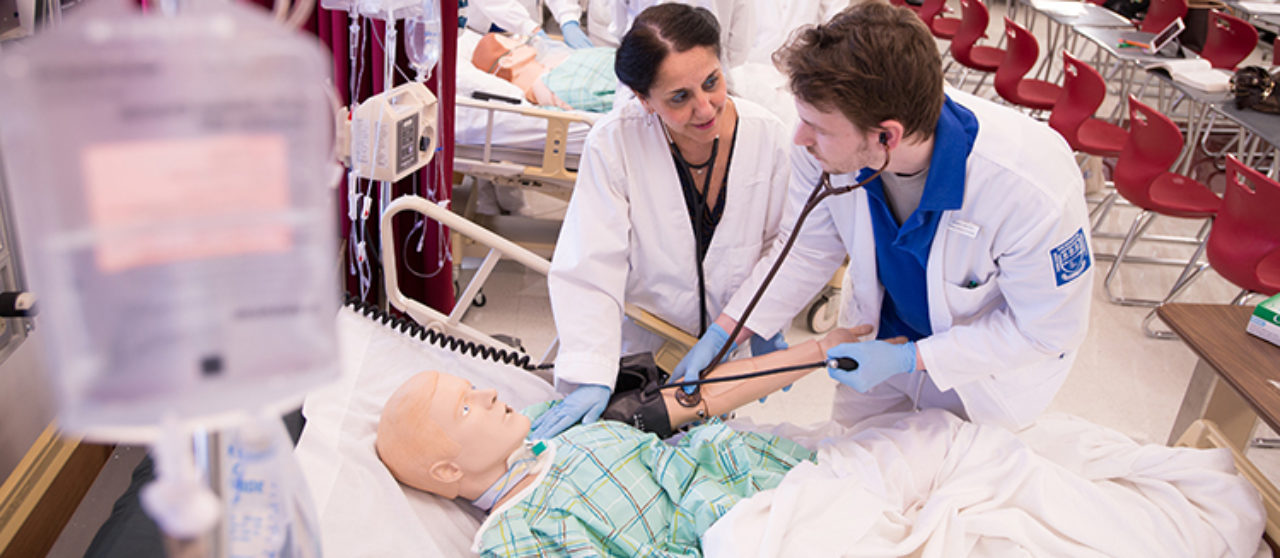Allied Health Program Outcomes

The faculty of the Henry P. Becton School of Nursing and Allied Health has articulated allied health program outcomes that are congruent with the mission and values of Fairleigh Dickinson University and guide the development of the curricular content and expected competencies required by the Commission on Accreditation of Allied Health Education Programs (CAAHEP).
- Communicate effectively and proficiently in providing health promotion and disease prevention interventions, and in conveying test information and other findings to other members the healthcare team.
- Use scientific reasoning and critical thinking to support decision-making and problem-solving.
- Display professional conduct that includes respecting the confidentiality and privacy of patients and displaying appropriate composure under stressful conditions.
- Synthesize knowledge from liberal arts, social sciences, and professional education to meet the health needs of a diverse patient population.
- Use current technology and appropriate evidence when planning, implementing, and evaluating allied health-related care across a variety of health care settings.
- Collaborate with members of a multidisciplinary health care team to optimize the health and health potential of clients.
- Exhibit leadership behaviors that are guided by ethical and legal principles and consistent with meeting our global health care challenges.
- Demonstrate appreciation for the importance of continuing professional development.